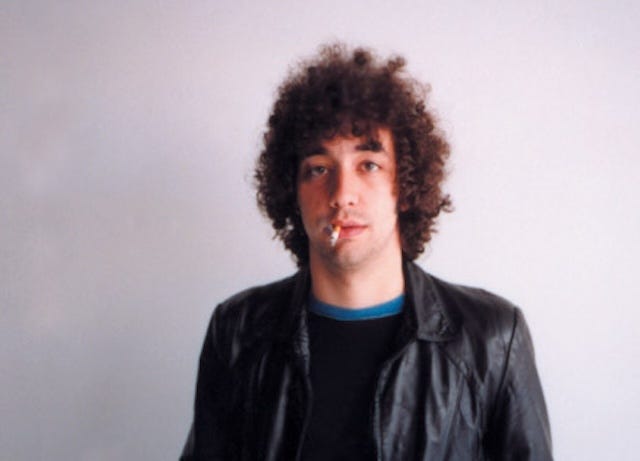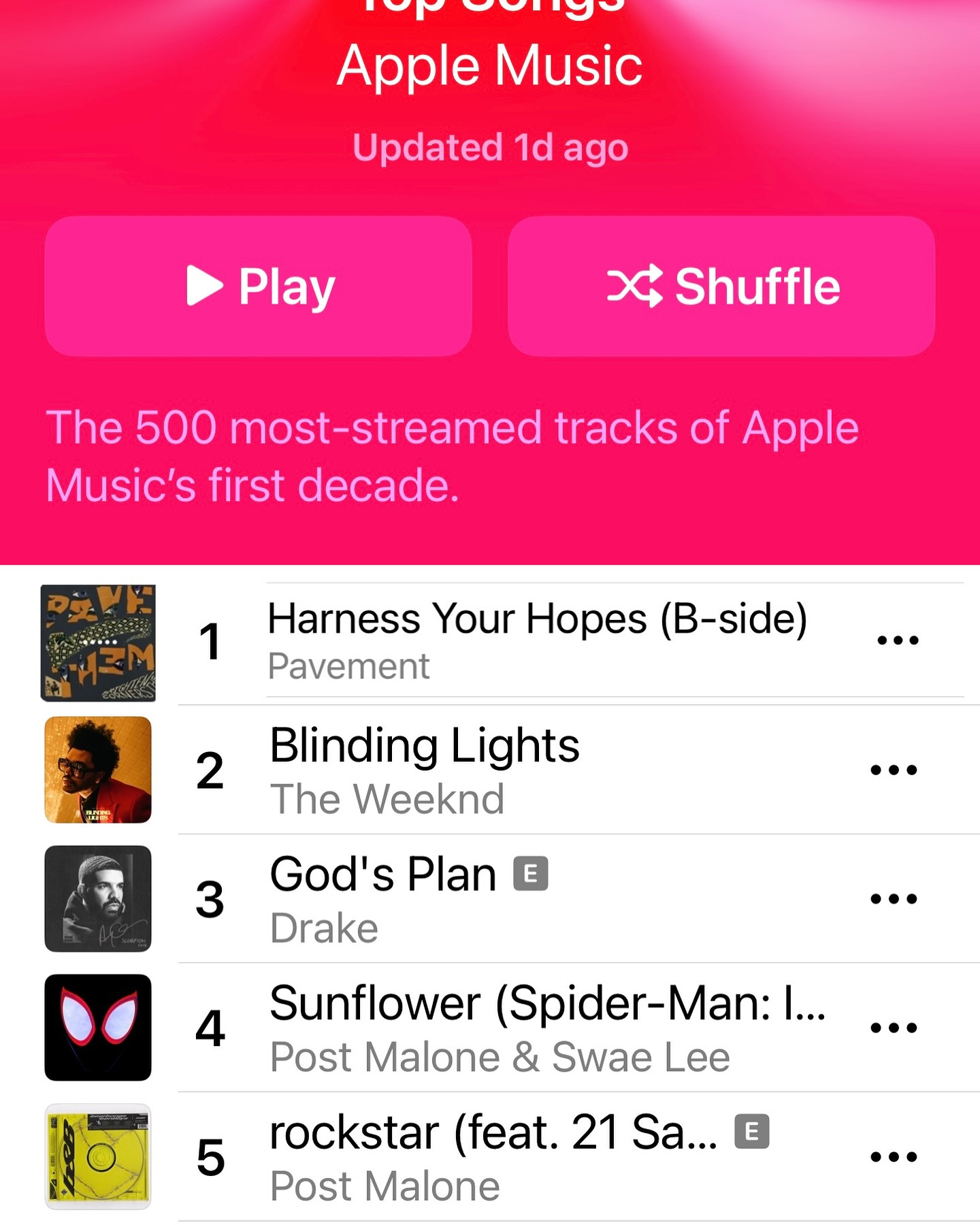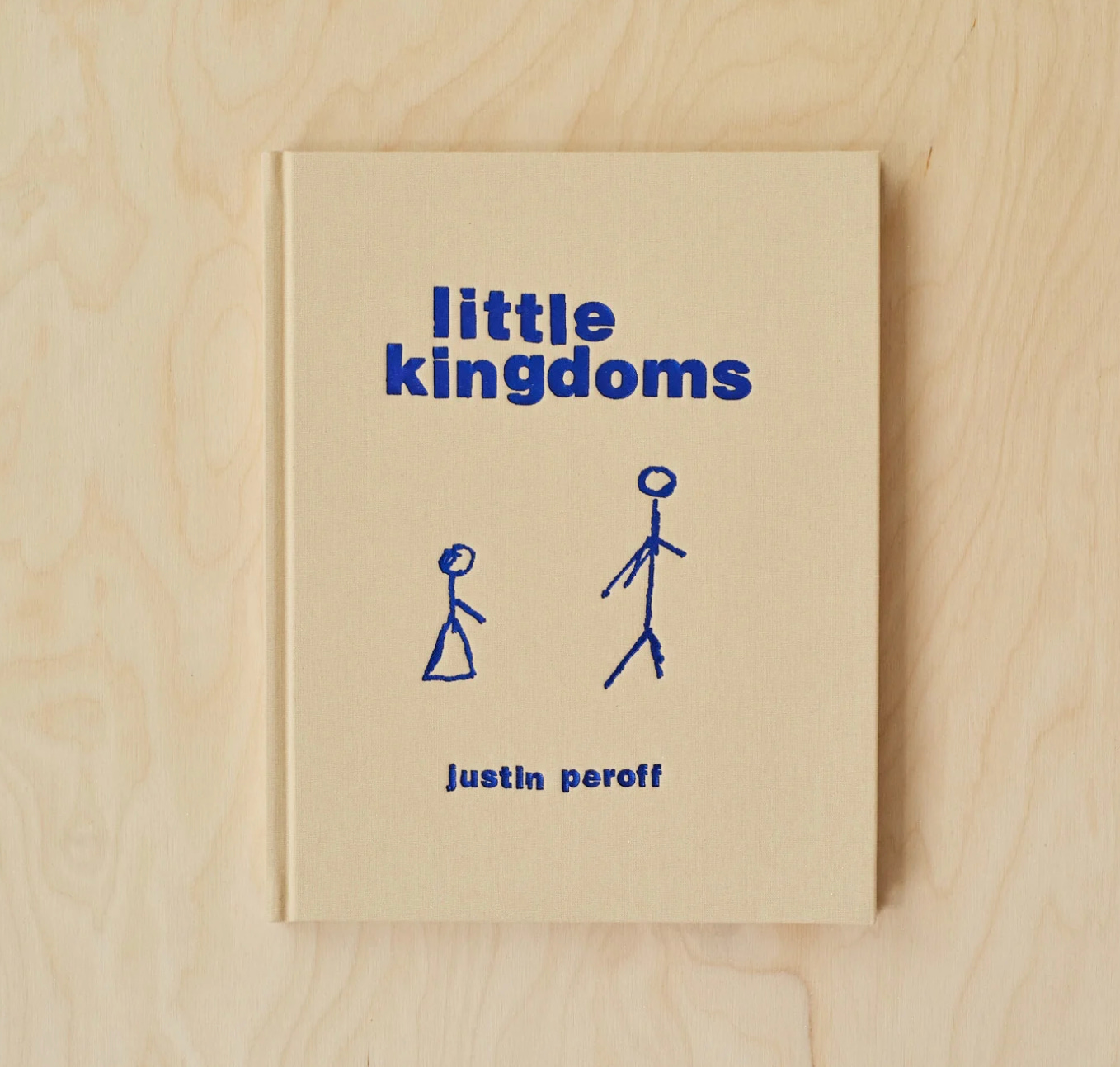A conversation with Albert Hammond Jr. from 2007
The Strokes guitarist on going solo, touring with Incubus, and loving Guided by Voices
Welcome to stübermania, where I dig into my box of dust-covered interview cassettes from the 1990s, 2000s, and 2010s to present bygone conversations with your favourite alterna/indie semi-stars (and the occasional classic-rock icon). This is a newsletter in three parts: The Openers (links to recent writings, playlist updates, and/or other musical musings), The Headliner (your featured interview of the week), and Encores (random yet related links).
This is a free newsletter, but if you really like what you see, please consider a donation via paid subscription, or visit my PWYC tip jar!
THE OPENERS
First off: Congratulations to the rock band Pavement on all their continued success. (In related news: Pavements is now streamable on MUBI!)
At least three people forwarded me this Fall meme within 24 hours this week. To the list, I might add: lmao = loud Mancunian accent, oi!; nbd = nothing beats Dragnet; brb = Brix rules, buddy; and hmu = he’s Mark-uh.
Over at A.C. Newman’s Substack, the New Pornographers frontman details his recent getaway at ex-Barenaked Lady Steven Page’s Summer Camp mini-festival in the Catskills—including the slightly awkward moment when Page reminded Newman that he dissed the Barenaked Ladies in an article that ran in a Toronto weekly circa 2001. I remember that article well—because I wrote it. (For the record: The story in question was published in Eye Weekly, not NOW magazine, as Newman claims—even in death, the Eye inferiority complex persists!) You can read an archived version of the original piece at my old Tumblr—in hindsight, the real target of Newman’s ridicule is the Juno Awards, and the Barenaked Ladies just happen to catch a stray. But I’m happy to read that, after 24 years, this most lukewarm of Canadian indie-pop beefs has been officially quashed.
This week in the Broken Social Scene industrial complex: Drummer Justin Peroff just announced the release of his first book, Little Kingdoms, which collects the colorfully chaotic poster and album art he’s created for BSS since the early 2000s, alongside his extracurricular adventures in mixed media. (You can read all about Justin’s history as Broken Social Scene’s resident visual director in the book’s foreword, written by yours truly.) Little Kingdoms can be pre-ordered now through its publisher, Company Studio, the media imprint founded by Chaz Bundick, a.k.a. Toro y Moi.
Notes on this week’s additions to the stübermania 2025 jukebox:
Public Health, “Kilimanjaro”: These Hamilton noise-punk phenoms drop their beast of a debut album, Minamata, today, and this is its monstrous, magma-oozing peak. If your top all-time Jehu jam is “Luau,” then say aloha to your new favourite 10-minute sludgefeast.
Neko Case, “Wreck”: For all its calamitous interstellar metaphors, the lovestruck lead single from Neon Grey Midnight Green (out Sept. 25) feels like an ecstatic, pressure-releasing exhale after the interminable seven-year wait between Neko albums, resulting in a string-swirled country-rock tornado that’s easy to love. (In case you missed it: Here’s my conversation with Neko from 2009.)
NODEGA, “Quantify”: With their, ahem, fontastically titled new album, Rot in Helvetica (out July 18), New York post-punkers Bodega lop the “post-” part off their job description and unleash their hardcore alter-ego—which actually resembles their usual culture-critiquing guise, only more bitter, harder, faster, and stressed out.
DEBBY FRIDAY, “Bet on Me”: By fortuitous coincidence, on the same day the 2025 Polaris Music Prize shortlist was revealed this week, the award’s 2023 winner released the best single from her upcoming album, The Starrr Of The Queen Of Life (out Aug. 1), a hit of breakbeat bliss that strikes a “Boy’s a Liar” balance of urgent and ethereal.
Good Flying Birds, “Eric’s Eyes”: If you’re a lo-fi indie-pop band that’s going to name itself after a Guided by Voice song, you’re setting an awfully high bar to clear. But this Indianapolis crew pull it off with a jangly gem in the vintage Pains of Being Pure at Heart vein—and be sure to stick around for the fuzzy finale, where their twee starts to show some teeth.
And speaking of Guided by Voices name-checks:
THE HEADLINER:
A conversation with Albert Hammond Jr.
The date: January 26, 2007
Publication: Eye Weekly
Location: I was at the Eye Weekly office in Toronto; Albert was calling in from Washington, DC
Album being promoted: Hammond’s debut solo album, Yours to Keep
The context: Strokes guitarist Albert Hammond Jr. is that rare breed of rock star: the sort who apologetically calls you right back after each of the three times his cellphone cuts out during your interview. But that sort of noble behaviour is consistent with the Hammond we hear on his winsome solo debut Yours to Keep, which reorients his jangular guitar melodies away from The Strokes’ Velvet Underground/Television foundation toward the melancholic pop tones of Guided by Voices and John Lennon (whose son Sean joined Ben Kweller and Julian Casablancas on the album’s celeb-stacked guest list).
And as if baring his sad-eyed soul on record wasn’t brave enough, Hammond and his five-piece band prepared for the album’s March 2007 North American release by pulling the most un-indie-sleazy move possible at the time: opening a tour for nü-metal/new-age hippies Incubus. But then Hammond has faced something far more frightening than a mob of jeering jocks: The week before this phone conversation, his tour bus was struck by a pickup truck that was being pursued by Texas state troopers, inadvertently foiling the cons’ getaway.
So did the Texas police give you an honorary badge?
No… it’s so funny that they wanted to know everyone’s name and stuff like that. We didn’t even do anything—we were just on the bus.
Are the Incubus crowds treating you alright?
I feel like it’s a challenge to play for an audience that doesn’t know you. The crowds have been really, really cool and every night I tell them that: It’s a pleasure to play in front of new people like that.
Has it changed your opinion of their music? I read a 2001 interview with you where you weren’t saying the nicest things about them. [Note: I couldn’t find a link to the interview I was referring to here, though this 2002 profile from The Face captures The Strokes vs. nu-metal binary that existed at the time.]
Really? Sometimes I get mixed up with other people in the band—I don’t consider myself a judge on what people should like and what they shouldn’t like; I just focus on what I have to do. I think they’re very talented musicians that put on a great show that’s built a following, and there’s nothing I can say to break that down without being 10 years old. As an adult, it seems a little silly to me to say anything about them.
When The Strokes first came out, I think people were looking for you to dismantle a certain nu-metal order…
For sure. I think that [Incubus] maybe got lumped in with people like Limp Bizkit, but whether you like them or not, they are talented musicians that work really hard and love what they do and have fans that really care, and who the hell am I?
Yours to Keep first came out in the UK a few months ago. Why has it taken so long for your record to come out here?
Well, it was never really meant to come out anywhere and it was never really meant to be a record. When I spoke to my manager and said I had this record, he liked it and asked, “do you think you can go to Rough Trade [in the UK] and get an honest opinion on whether they’d release it?” So we went there and they really liked it. It just sort of grew from there—and just for legal reasons it just takes longer to do things in America sometimes. It would be great if it all came out at the same time. It was like, “what company can I speak to in a way that they’re going to talk to me and not in a company way,” and I’ve had a great relationship with Geoff Travis due to the Strokes stuff, and he would be honest with me—he would be like, “I don’t like the record Albert, but maybe this guy does”—and things in England seems to move quicker that way. I didn’t want to do shows or press for it, and I knew they would understand that. But in America, no one’s going to listen to you unless they can own the whole CD and you’re going to do a huge tour.
So is the title “Yours to Keep” a reference to the Guided by Voices song?
In some ways. I used to write that on all my demos when I was handing it to friends instead of writing “demo” on it. And then I saw “Yours to Keep” on the Guided by Voices record, and I was like that could be a cool title—they’re one of the reasons why I even do what I do.
I can hear a lot of Bob Pollard on this record.
If you heard the demos I made at home before the CD, you’d hear a lot of Guided by Voices, sonically.
Are you still in touch with those guys?
Yeah, we cover “Postal Blowfish” on the road, and Bob Pollard found out and he got the CD and really likes it, and I’m supposed to call him and talk to him, but I’m really nervous, because he’s a hero of mine.
It’s interesting how everyone’s talking about how sunny the album is, but lyrically it’s a bit of a bummer.
Yeah, I feel like people take it in both ways. I don’t really know sometimes what I was coming across with. As I look back on it, the bummer part comes from realizing the bummer and wanting to change from it, and just that process of wanting to get out of something but still getting stuck in it. And some things are just personal and some things are about the ways you’ve seen people act. Everything becomes a learning process: You try to do something new and learn from it, whether you fully do it right or not. You have to go through it to change.
You can hear that transition in “Hard to Live in the City,” where the song ends and then you have this upbeat coda with the horns.
That’s exactly it. I didn’t want it to seem like a bummer; if anything I wanted it to seem like you go through all these things, but it’s still always good, still always positive.
So contrary to what the song says, you’re not planning to leave New York any time soon.
No, I love it.
Have you always been a confident singer?
Definitely not. The way I always looked at it is: I never considered myself a singer since I was little, but when you’re writing songs, there’s no other way of doing it. When you have songs you want to do, you just try to find something unique so I can make it my own. Unless you’re Freddie Mercury and you just know. There’s no other choice: It’s either that, or you don’t do it.
Was this record a deliberate retreat from the big rock sound of the last Strokes record?
No. I wasn’t going in to make a record—I had “Cartoon Music” and I just wanted to go in and record it with ear candy all around and fun patterns, and I thought it sounded good. My friends seemed to like it, so I went and recorded another song. This album only took two weeks in the studio, but that was over a period of a year and three months. We grew from doing it in someone’s kitchen to doing it in The Strokes’ studio to doing it in Electric Lady, so our confidence kind of grew by the end. If I went to do it again, I’d do things a lot differently. The Strokes had reached a point where they were doing things differently, because it was their third record. This didn’t seem like a fourth record, it seemed like a first.
So your schedule with The Strokes is so packed, you can’t even get a week off to focus on one thing?
Yeah, when we were doing [Yours to Keep], The Strokes were really busy in the studio—you can’t just leave the recording room. Then, The Strokes were on tour from October 2005, so by then, I’d only done three songs [for my album], and then we were gone. And when you come home, sometimes you don’t want to go record, you just want to sit down for a second. And I was writing the songs at the same time too, so I’d come home and work on stuff and then make plans to record it when I came back two months later. It was tough.
I noticed a lot of your press shots for this record feature your entire band. Did you consider going under a band name?
We did, actually. While we were recording it, we became a band. But all these songs were things in my head, so it seemed weird to give it a band name.
How did you line up all the guests on this record?
It was just random phone calls being made to friends, because I didn’t have anyone to play with and wanted someone else’s dynamic playing the part—until the end, when it was me, Matt, and Josh laying down all the basic tracks. It became a lot different, it became more of a band. But sometimes, I just needed someone to come in and do bass, and I’d call Sean [Ono Lennon].
Is he an old friend from New York?
Yeah, I met him a few years ago. We bonded over Japanese food and became friends.
Would you say you’re a perfectionist or do you prefer to keep things off-the-cuff?
I always like the idea of having a frame to work in and then doing what I want around that structure. I like the idea of having a box to work in and do whatever you want in that three-minute frame.
Does your dad ever give you any songwriting pointers?
Definitely not. We don’t really talk about music so much. I found it on my own, and it’s not the kind of thing you can learn. You just do it until you find your own feel for it, and then maybe you can talk after. But first, you have to figure out what works for you and what doesn’t.
ENCORES
So Albert did end up leaving New York City after all—he’s called L.A. home since 2019. And I think it’s safe to say the move did him some good.
I’d say that, over the past two decades, Albert has built up the most consistently enjoyable solo discography of all the Strokes. And while 2018’s Francis Trouble seems to be his runaway winner in the streaming sweepstakes, I’m especially partial to his 2015 release, Momentary Masters, which, as I wrote in my Pitchfork review, “reasserts the carefree charm and hooky immediacy that’s gotten lost amid [The Strokes’] latter-day experimentation.” Check out album highlight “Losing Touch,” a spiritual successor of sorts to fellow 2000s hype magnet LCD Soundsystem’s “Losing My Edge.”
This is a free newsletter, but if you really like what you see, please consider a donation via paid subscription, or visit my PWYC tip jar!









Miss this era! Great stuff